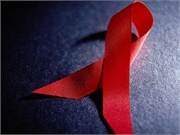Men receiving HIV care still not receiving guideline-recommended sexually transmitted disease testing
WEDNESDAY, May 6, 2020 (HealthDay News) — Many sexually active men who have sex with men (MSM) do not receive recommended prevention services and sexually transmitted disease (STD) testing when receiving care for HIV infection, according to a research letter published online May 5 in the Annals of Internal Medicine.
John Weiser, M.D., from the U.S. Centers for Disease Control and Prevention in Atlanta, and colleagues estimated the prevalence of STD transmission risk behaviors and receipt of recommended prevention services and annual STD testing among MSM receiving care for HIV infection. The analysis included 1,269 MSM participating in the Medical Monitoring Project.
The researchers found that 64.5 percent of MSM reported having condomless anal intercourse in the past 12 months. Before or during sex, 46.9 percent reported drinking alcohol, 35.8 percent used noninjection drugs, and 3.7 percent injected drugs. Six in 10 respondents (61.1 percent) received care at Ryan White HIV/AIDS Program (RWHAP)-funded facilities, although there were no clinically relevant differences in risk behaviors by facility funding status. Higher percentages of patients at RWHAP-funded facilities received all assessed prevention services during the past 12 months, including receiving informational materials, free condoms, and conversations with prevention workers, health care workers, and small groups. Similarly, the prevalence of STD testing during the previous 12 months was higher among patients seen at RWHAP-funded facilities.
“Meeting public health goals for preventing STDs, and in turn ending the HIV epidemic, may require closer adherence to guidelines for delivering prevention services and STD testing to HIV-positive MSM, especially for those receiving care at non-RWHAP-funded facilities,” the authors write.
Copyright © 2020 HealthDay. All rights reserved.








